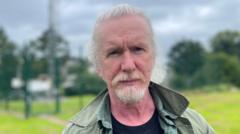What Happened to Former Nigerian Leader Muhammadu Buhari at 82?

Remembering Muhammadu Buhari: A Complex Legacy of Governance in Nigeria
The passing of Muhammadu Buhari marks a significant moment in Nigeria’s political landscape. As a former military ruler and later a democratically elected president, Buhari’s life and career mirror the tumultuous history of Nigeria itself. His reputation as a leader of integrity, coupled with the challenges he faced during his administration, evokes a mixed legacy that continues to provoke discussion among Nigerians and political analysts alike. This article delves deep into Buhari's life, his rise to power, governance challenges, and the impact of his policies, thus providing a comprehensive overview of his complex legacy.
Early Life and Military Career
Born in December 1942 in Daura, Katsina State, Muhammadu Buhari came into a world dominated by British colonial rule. His early years were marked by personal loss, as his father passed away when he was just four years old. Raised by his Kanuri mother, Buhari had a modest upbringing, attending primary school in Daura before moving on to boarding school in Katsina. In a nation soon to gain independence, Buhari's journey into military training would shape his future significantly.
Upon Nigeria's independence, Buhari joined the Nigerian Military Training College, ultimately rising through the ranks to become a notable military figure. His time spent in the UK for officer training from 1962-1963 instilled in him a rigorous discipline that would characterize his leadership style. By 1966, Nigeria had plunged into political chaos, marked by military coups and counter-coups. Although Buhari claimed he played a minor role during these upheavals, his military career would soon take a pivotal turn.
Return to Power: The Military Regime and Beyond
Buhari's ascent to power came following a coup in December 1983, which overthrew the democratically elected President Shehu Shagari. As Major-General, Buhari assumed leadership, promising to address rampant corruption and indiscipline that plagued Nigerian governance. His administration, characterized by a strict anti-corruption campaign, saw the jailing of numerous politicians and businessmen. This period is often viewed dichotomously; some hailed his crackdown on corruption while others criticized the human rights abuses that accompanied his rule.
Under Buhari, the government enforced strict measures to instill discipline among citizens. Initiatives such as the "war against indiscipline," which mandated orderly behavior in public spaces, drew both supporters and detractors. The heavy-handed approach included punishment for tardiness among civil servants and restrictions on press freedom, which led to the incarceration of journalists and public figures, including the renowned musician Fela Kuti.
Transition to Democracy
After being ousted in a coup led by General Ibrahim Babangida in 1985, Buhari spent 40 months in prison. His release marked a turning point; the dissolution of the Soviet Union and the global shift towards democracy inspired him to embrace multiparty politics. Despite his previous military role, Buhari's commitment to democratic governance grew stronger. In 2015, he made a historic return to power as the first opposition candidate to unseat an incumbent president since Nigeria's return to democracy in 1999.
The 2015 Presidential Election: A Historic Victory
Buhari's election in 2015 was seen as a watershed moment for Nigeria. He campaigned on a platform of anti-corruption, economic reform, and security, particularly focusing on the growing threat of Boko Haram in the northeast. His military background was seen as an asset in tackling the insurgency and restoring order. However, the realities of governance soon set in, and the challenges he faced were formidable.
Challenges Faced During Buhari’s Presidency
Economic Struggles
During Buhari's presidency, Nigeria faced a severe economic downturn exacerbated by a slump in global oil prices. The country's economy, heavily reliant on oil exports, suffered significantly, leading to high inflation rates and rising unemployment. Despite his promises to create job opportunities, the economic landscape remained bleak for many Nigerians, especially the youth.
Security Issues
One of Buhari's central campaign promises was to quash Boko Haram, yet the group continued to pose a significant threat throughout his administration. Despite military efforts, terrorist attacks persisted, and new challenges emerged, including clashes between farmers and herders, kidnappings by bandits, and escalating violence in various regions. Critics argued that Buhari's administration failed to implement effective strategies to address these security challenges, leading to widespread discontent among the populace.
Human Rights Concerns
Human rights abuses under Buhari's watch were a significant concern. Incidents such as the Lekki tollgate shooting of peaceful protesters in October 2020 drew national and international condemnation. Buhari’s government was criticized for its heavy-handed response to dissent and its perceived inability to protect civil liberties. This further fueled public disillusionment with his administration.
A Legacy of Mixed Reviews
Buhari‚Äôs legacy is one of contrasts. While he maintained a reputation for personal integrity and honesty, his presidency was marred by economic hardships and security crises. The soaring prices of staple goods, particularly rice, became emblematic of his administration's struggles. Consumers witnessed the price of a 50kg bag of rice skyrocket from 7,500 naira to 60,000 naira‚ÄĒa change that significantly impacted food security for many Nigerians.
The Naira Swap Policy and Election Dynamics
As Buhari‚Äôs term progressed, his administration introduced the controversial ‚Äúnaira swap policy‚ÄĚ just before the 2023 elections, aiming to limit cash influence in politics. However, the policy's execution led to widespread suffering, particularly for the economically vulnerable. Shortages of new currency notes caused chaos and frustration, ultimately complicating the electoral process. The elections resulted in Bola Tinubu narrowly winning, amidst claims that Buhari's policies had a profound effect on the electoral landscape.
Personal Life
Beyond politics, Buhari’s personal life was marked by two marriages and ten children. His second wife, Aisha Halilu, has been a prominent figure in Nigeria, often involved in social causes. Despite his public persona, Buhari's private life remained relatively low-profile, aligned with his image of modesty and integrity.
Conclusion: Reflecting on Buhari's Impact
The death of Muhammadu Buhari brings to a close a significant chapter in Nigeria’s political narrative. His journey from a military ruler to a democratically elected president is a testament to the complexities of Nigerian governance. While he is remembered for his integrity and a strong stance against corruption, the challenges faced during his tenure highlight the multifaceted nature of leadership in a diverse and dynamic country.
As Nigerians reflect on Buhari's legacy, questions linger about the future of governance and the potential for meaningful change. The lessons learned from his time in office may serve as a foundation for the next generation of leaders. What will history ultimately say about Muhammadu Buhari, and how will his experiences shape the direction of Nigeria moving forward?
FAQs
What were the key achievements of Muhammadu Buhari's presidency?
Some key achievements include a focus on anti-corruption initiatives and efforts to improve security in the northeast against Boko Haram. However, the effectiveness of these measures has been debated.
Why did Buhari’s popularity decline during his presidency?
His popularity waned due to economic challenges, rising food prices, and dissatisfaction with the handling of security issues. Promises made during his campaign were not fully realized, leading to public disillusionment.
How did Buhari's military background influence his governance style?
Buhari's military background shaped his approach to governance, emphasizing discipline and strict enforcement of laws. However, it also led to accusations of authoritarianism and human rights abuses during his rule.
As we move forward in Nigeria's evolving political landscape, the impact of Buhari's leadership will continue to resonate. How will future leaders address the lessons learned from his time in office? #Nigeria #MuhammaduBuhari #PoliticalLegacy
Published: 2025-07-13 16:59:17 | Category: world



